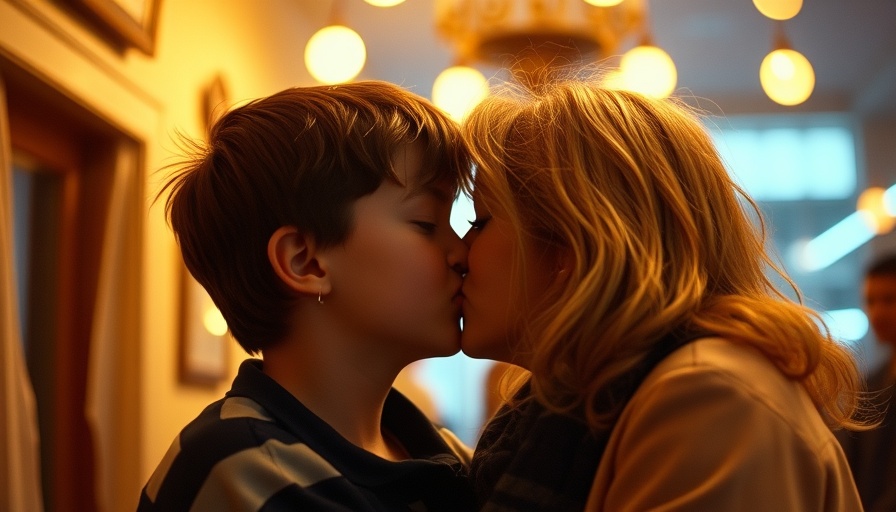
Why Nostalgia Sometimes Hides Unpleasant Truths
In an age where cultural discussions actively reshape the way we view past media, commonly cherished '90s classics are finding themselves on the chopping block for a modern-day critique. The BuzzFeed community recently engaged in a spirited conversation about films and shows from this beloved decade that no longer hold up against contemporary social standards. This examination transcends mere nostalgia, inviting an exploration into how our perceptions change over time.
Problematic Themes in Beloved Classics
Among the most prominent critiques is the 1993 hit Mrs. Doubtfire, which, while initially a heartwarming family comedy, has drawn attention for its transphobic elements and troubling depictions of familial secrecy. Many parents—once enamored by its charm—now find it difficult to overlook its outdated themes when viewed through a modern lens, especially around sensitive topics affecting the LGBTQ+ community.
Similarly, the iconic sitcom Seinfeld invited criticism for various uncomfortable storylines, such as a scene involving sexual assault during a dental procedure. Audiences who once viewed it as a pioneering television series may find the humor jarring and unacceptable today. These instances highlight how beloved narratives can reflect societal issues that remain relevant—even if their portrayals are jarring.
Questionable Age of Teen Romance in Film
Another highly criticized film, Blank Check, reflects an unsettling norm around minor-adult interactions that receive little scrutiny. The premise of eleven-year-old Preston sharing romantic moments with a thirty-something FBI agent not only skews moral boundaries but also raises questions about media messages regarding consent and relationships—particularly significant in the current social landscape.
As another example, the premise of Doogie Howser, M.D. features adult women pursuing romantic relationships with a teenage character, adding to the discomfort surrounding the representational age dynamics in media during the '90s.
What Do These Reflections Say About Us?
Critiquing the media of our past allows for an essential dialogue surrounding how societal values evolve. The '90s may have introduced humor that challenged norms, but many of these breaks with conventions now feel jarring. By reckoning with these issues, pop culture enthusiasts can create a heightened awareness of what messages we accept within our entertainment systems. It calls into question the very essence of what we consider acceptable storytelling and who our narratives include.
Modern Perspectives: Entertainment Today
The ongoing discourse regarding these outdated classics finds a parallel in today’s entertainment environment which increasingly prioritizes inclusivity and sensitivity. More contemporary productions strive to avoid bias and actively feature diverse representations. This evolution can be seen in newer TV shows and films that approach complex societal topics with depth and understanding, paving the way for future generations to find relatable reflections of their own experiences and identities.
Taking Action: What Can You Do?
For those who cherish the memories of '90s classics, it’s pertinent to engage in these conversations actively. Reflect on the movies and shows you love, and consider supporting creators who advocate for diversity in storytelling and whose work promotes an inclusive dialogue. By emphasizing critical engagement, audiences can reshape the landscape of entertainment in a way that honors the past while building a brighter, more empathetic future.
As the conversation surrounding '90s media continues, we must strive to evolve our perspectives and embrace change. Whether we enjoy these nostalgic titles or challenge them based on their outdated ideologies, the goal is progress.
 Add Row
Add Row  Add
Add 



Write A Comment